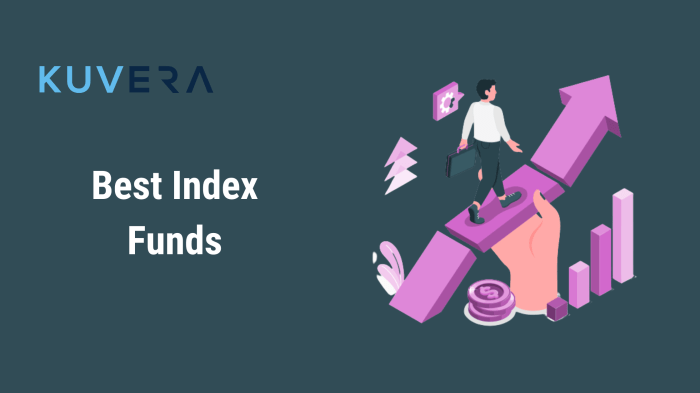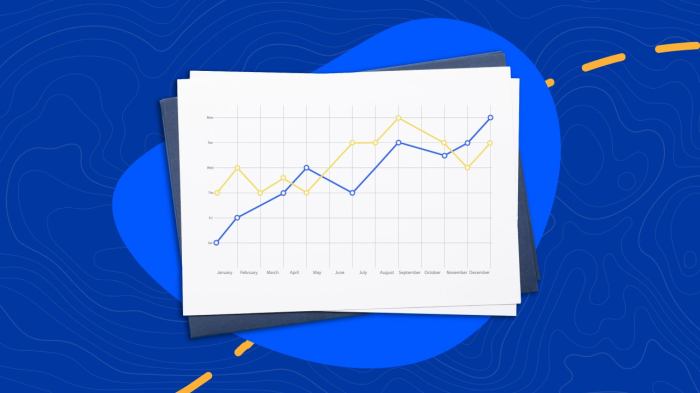
Exploring the realm of Best Index Funds for Retirement, this introduction sets the stage for a deep dive into the world of investment choices tailored for your golden years.
From understanding the basics of index funds to uncovering the top performers for retirement, this guide aims to equip you with essential knowledge to make informed decisions.
Introduction to Index Funds

Index funds are a type of mutual fund or exchange-traded fund (ETF) that aims to track the performance of a specific market index, such as the S&P 500. Instead of being actively managed by a fund manager, index funds passively follow the index they are based on.
Investing in index funds for retirement can be a smart choice for many investors due to their low fees, diversification, and historically strong performance compared to actively managed funds.
Popular Index Funds for Retirement
- Vanguard Total Stock Market Index Fund (VTSAX)
- Schwab Total Stock Market Index Fund (SWTSX)
- iShares Core S&P 500 ETF (IVV)
Benefits of Investing in Index Funds for Retirement Savings
Index funds offer several advantages for retirement savings:
- Low fees compared to actively managed funds, which can eat into returns over time.
- Diversification across a wide range of assets, reducing risk compared to investing in individual stocks.
- Historically strong performance, with many index funds outperforming actively managed funds over the long term.
- Passive management means less frequent trading, which can result in lower capital gains taxes for investors.
Best Index Funds for Retirement
When planning for retirement, choosing the right index funds is crucial to ensure long-term growth and stability in your portfolio. Here are some of the top index funds that are well-suited for retirement investors:
Vanguard Total Stock Market Index Fund (VTSAX)
The Vanguard Total Stock Market Index Fund is a popular choice for retirement portfolios due to its broad diversification across the entire U.S. stock market. This fund aims to track the performance of the CRSP US Total Market Index, providing exposure to large, mid, small, and micro-cap stocks.
Fidelity Total Market Index Fund (FSKAX)
Similar to the VTSAX, the Fidelity Total Market Index Fund offers investors exposure to the entire U.S. stock market. With low expense ratios and a focus on minimizing fees, this fund is a cost-effective option for retirement investors looking for broad market exposure.
Schwab U.S. Broad Market ETF (SCHB)
The Schwab U.S. Broad Market ETF is another excellent choice for retirement portfolios, providing diversified exposure to U.S. large, mid, and small-cap stocks. This fund offers a low expense ratio and is suitable for investors seeking long-term growth and stability.
iShares Core S&P 500 ETF (IVV)
For investors looking to focus on large-cap U.S. stocks, the iShares Core S&P 500 ETF is a popular option. This fund aims to track the performance of the S&P 500 index, offering exposure to some of the largest and most established companies in the U.S.
Comparison of Performance and Historical Returns
When comparing the performance and historical returns of these index funds, it is important to consider factors such as expense ratios, tracking error, and long-term growth. Investors should analyze the risk-adjusted returns of each fund to determine which option aligns best with their retirement goals.
Diversification Benefits of Investing in Different Types of Index Funds
Diversification is key to reducing risk in a retirement portfolio, and investing in different types of index funds can help achieve this. By spreading investments across various asset classes, sectors, and geographies, investors can mitigate risk and enhance long-term returns. It is important to maintain a balanced mix of index funds to ensure a well-diversified retirement portfolio.
Income Funds vs. Index Funds
Income funds and index funds are two popular investment options for retirement planning, each with its unique characteristics and benefits. Income funds primarily focus on generating regular income through dividends, interest payments, or other distributions from the underlying investments. On the other hand, index funds aim to track a specific market index’s performance by investing in a diversified portfolio of securities that mirror the index’s composition.
Differentiation between Income Funds and Index Funds
Income Funds:
- Income funds are designed to provide a steady stream of income to investors, making them ideal for retirees seeking regular cash flow.
- These funds typically invest in dividend-paying stocks, bonds, or other income-generating assets to generate returns.
- Income funds are actively managed, with the fund manager making decisions to maximize income generation for investors.
Index Funds:
- Index funds passively track a specific market index’s performance, such as the S&P 500, by holding a similar mix of securities as the index.
- These funds offer broad diversification and low expense ratios, making them cost-effective investment options.
- Index funds are ideal for long-term investors looking to achieve market returns with minimal active management.
Using Income Funds and Index Funds in Retirement Planning
Income Funds:
- Income funds can be a valuable component of retirement planning for individuals looking to supplement their retirement income with regular payouts.
- Retirees may rely on income funds to cover living expenses or fund discretionary spending during retirement.
Index Funds:
- Index funds are suitable for retirees looking to maintain a diversified investment portfolio and benefit from long-term market growth.
- Retirees can use index funds to achieve market returns without the need for active management or frequent portfolio adjustments.
Risks and Rewards of Income Funds and Index Funds for Retirement Income
Income Funds:
- Risks: Income funds may be subject to interest rate risk, credit risk, and market volatility, affecting the fund’s ability to generate consistent income.
- Rewards: Income funds offer the potential for regular income distributions, helping retirees meet their financial needs during retirement.
Index Funds:
- Risks: Index funds are exposed to market fluctuations and the overall performance of the underlying index, impacting investment returns.
- Rewards: Index funds provide low-cost diversification and the opportunity to participate in broad market growth over the long term.
Inflation Hedge with Index Funds

Index funds can serve as a hedge against inflation in retirement portfolios by providing diversified exposure to a wide range of assets. Unlike actively managed funds, index funds typically have lower fees and turnover rates, making them more cost-effective in the long run.
During inflationary periods, certain index funds have historically performed well by holding assets that tend to increase in value as prices rise. These assets may include stocks of companies with pricing power, real estate investment trusts (REITs), and commodities like gold.
Examples of Index Funds for Inflation Protection
- Vanguard Inflation-Protected Securities Fund (VIPSX): This index fund invests in Treasury Inflation-Protected Securities (TIPS), which are designed to provide a hedge against inflation.
- iShares Gold Trust (IAU): This fund tracks the price of gold, which has historically been a popular inflation hedge due to its intrinsic value and scarcity.
- Schwab U.S. TIPS ETF (SCHP): Another fund that focuses on Treasury Inflation-Protected Securities, offering investors a way to protect their purchasing power in inflationary environments.
Strategies for Using Index Funds to Combat Inflation Risks
- Diversification: By investing in a mix of asset classes that have historically performed well during inflationary periods, such as stocks, real estate, and commodities, investors can better protect their portfolios.
- Rebalancing: Regularly reviewing and adjusting the allocation of assets in the portfolio can help ensure that it remains aligned with the investor’s risk tolerance and long-term goals.
- Consideration of TIPS: Treasury Inflation-Protected Securities can be a valuable addition to a retirement portfolio, providing a guaranteed return above inflation rates.
Insurance Premiums and Retirement Planning
As individuals approach retirement, the impact of insurance premiums on their finances becomes increasingly significant. Health insurance, long-term care insurance, and other types of insurance can represent a substantial portion of retirement expenses.
Offsetting Insurance Premiums with Index Funds
Investing in index funds can be a strategic way to help offset the cost of insurance premiums in retirement. By earning returns on your investments, you can create a source of income that can be used to cover insurance expenses without significantly impacting your retirement savings.
- Index funds offer a diversified investment option that can provide steady returns over the long term, helping to build a financial cushion to cover insurance costs.
- By regularly contributing to index funds throughout your working years, you can accumulate a substantial nest egg that can be used to fund insurance premiums in retirement.
- Consider consulting with a financial advisor to develop a comprehensive retirement plan that includes strategies for balancing insurance needs with index fund investments.
As we wrap up our discussion on Best Index Funds for Retirement, remember that the key to a secure financial future lies in strategic investment choices and a well-rounded portfolio.
Quick FAQs
What are index funds and how do they work?
Index funds are passively managed investment funds that aim to replicate the performance of a specific market index. They offer broad market exposure at a low cost.
How do index funds help in retirement savings?
Index funds provide diversification and typically have lower fees compared to actively managed funds, making them attractive options for long-term retirement investments.
What is the difference between income funds and index funds?
Income funds focus on generating regular income through dividends and interest payments, while index funds aim to track the performance of a specific index like the S&P 500.
How can index funds protect against inflation in retirement portfolios?
Index funds can act as a hedge against inflation by offering exposure to a wide range of assets that can potentially grow in value over time, helping to preserve purchasing power.
Can investing in index funds help offset insurance premiums in retirement?
By generating returns over the long term, index funds can provide a source of funds to help cover insurance costs in retirement, offering a way to balance financial needs effectively.





